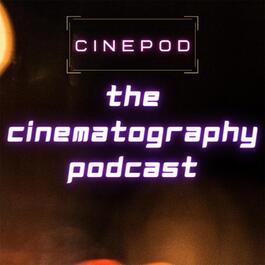
Media and the Munich massacre: September 5 DP Markus Förderer
The film September 5 is the story of the ABC Sports broadcasting team covering the terrorist attack at the 1972 Munich Olympics. It was the first Olympics to be broadcast live, when Israeli Olympians were taken hostage at the Olympic Village by Palestinian terrorists. The sports reporting team, initially focused on covering the games, finds themselves suddenly thrust into the role of live news reporters as the hostage situation unfolds. They have to grapple with the terrifying events while trying to inform the world about what was occuring. September 5 focuses on the pivotal role of media coverage in shaping public understanding of the crisis. While waiting for financing for September 5, cinematographer Markus Förderer and director Tim Fehlbaum spent three years researching and scouting for the film. They obtained permission to shoot at the Munich Olympic village, to fully set the film in the historical context. The television studio and control room were all built on soundstages. Once September 5 was finally green-lit, Markus had only a tight two-week prep period, during which he experimented with his own lens tuning and modifications. An avid lens hobbyist, Markus took some lenses apart, adding dust, smudges and fingerprints to some of the elements to give the film an authentic period look. They shot digitally on a RED V-Raptor on two cameras, with Markus operating one of the cameras himself. It was important to director Tim Fehlbaum to create a very claustrophobic feeling within the windowless television studio. "Tim was adamant that we only show what the characters would have seen," Markus explains. "The TV monitors became their windows to the outside world." The film blends original footage with real, archival news films and meticulously recreated scenes. Markus wanted the visual style to reflect the era, while maintaining a contemporary relevance. Both Markus and Fehlbaum were influenced by the look and feel of Natural Born Killers. The use of analog technology such as flickering fluorescent lights and TV monitors became an important tool for Markus to create a state of heightened tension. "If we flicker these monitors, which we use as a key light source in the dark control room, the whole image will pulse," Markus says. "It looked really crazy, but it was fascinating. We synced it so it looks right on camera. As the tension gets higher and higher in certain scenes, like when we see the masked man on the balcony, we dynamically ramp up the flicker frequency of our film lights." You can see September 5 wide in theaters January 17th. Find Markus Forderer: Instagram @markusforderer Check out Markus' passion project, CINEFLARES. https://lenses.cineflares.com/ Sponsored by Hot Rod Cameras: https://hotrodcameras.com/ Sponsored by Aputure: https://aputure.com/ The Cinematography Podcast website: www.camnoir.com YouTube: @TheCinematographyPodcast Facebook: @cinepod Instagram: @thecinepod Blue Sky: @thecinepod.bsky.social
From "The Cinematography Podcast"


Comments
Add comment Feedback